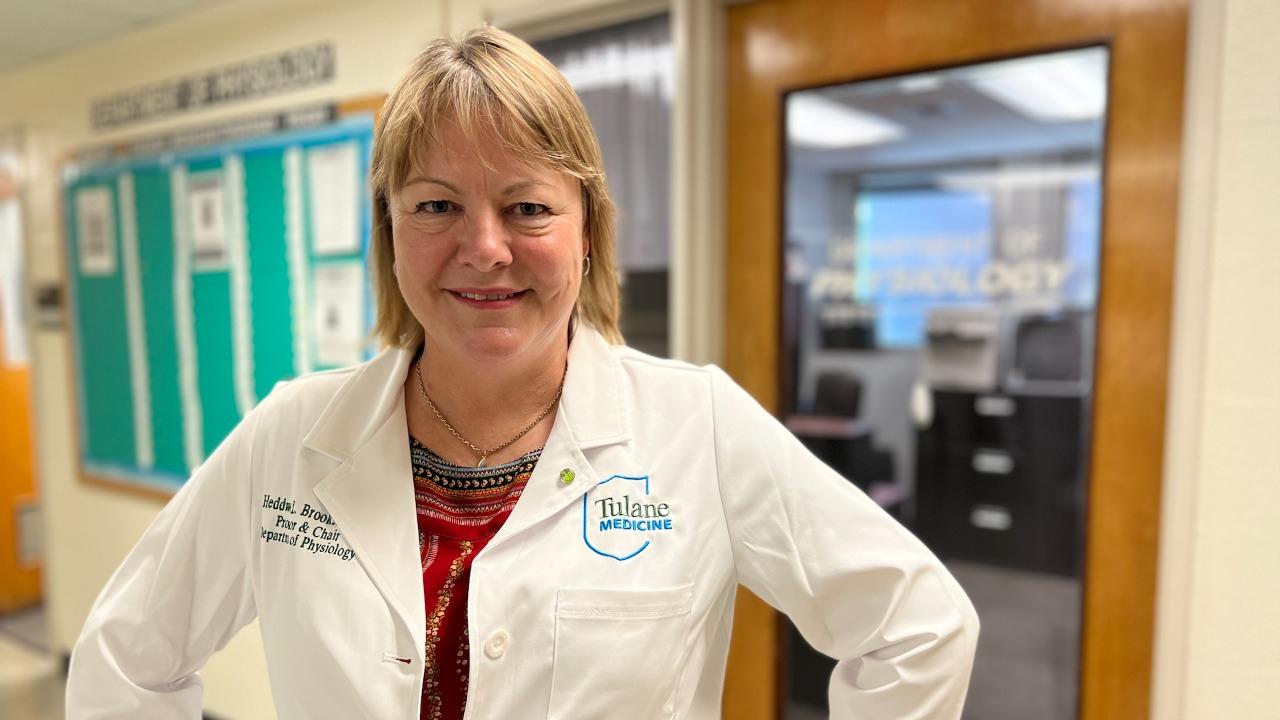New Department of Physiology Chair honored with prestigious research award
Heddwen Brooks, PhD, arrived at Tulane University School of Medicine this fall, and the Department of Physiology Chair is already adding a new line to her CV. Brooks has been awarded the International Society of Hypertension (ISH) 2022 Award of Excellence for Research in Cardiovascular Health and Disease in Women.
Brooks joins Tulane from the University of Arizona College of Medicine, where she held joint appointments as Professor of Biomedical Engineering, Professor of Medicine/Nephrology and Medical Pharmacology. Her research focuses on sex differences in physiology, integrating cross-disciplinary expertise in hypertension, diabetes, menopause, and renal physiology, and examining the molecular signaling pathways involved in postmenopausal accelerated aging. Her more recent efforts focus on the how sex differences in inflammation, T cells and macrophages change hypertension onset and the development of metabolic syndrome.
“It is widely acknowledged by your colleagues that you are a prominent scientist in the field of hypertension and cardiovascular diseases,” wrote ISH representatives when notifying Brooks of the award. “The Committee recognized your ground-breaking research on the role of the immune system in hypertension in females, in particular your identification of the sex differences in the development of T cell mediated hypertension and discovery that there is a loss of protection against T cell mediated hypertension during post menopause. As a result of this, the Society feels that you are an ideal choice for the award.”
Brooks was honored at a ceremony in Kyoto, Japan, though had to miss the gala as she was on her way to New Orleans to start as Chair of Physiology.
“Being nominated by my colleagues for this award and to be selected was an honor,” said Brooks. “It truly acknowledges the large body of work from my current and past trainees and collaborators as we work to understand how sex differences in physiology interact with the immune system to impact hypertension and cardiovascular disease. Our work highlights how women have very different health outcomes than men as we age and transition through menopause.”
As for her new role at Tulane, Brooks is already hard at work.
“I am excited to be here at Tulane, there is a tremendous energy in the School of Medicine and throughout the downtown campus,” Brooks said. “The vision for the Department of Physiology is to build on our strong history of neuroscience and cardiovascular disease research. We will recruit additional outstanding researchers so that we can tackle some of the important health issues here in New Orleans and Louisiana including diabetes, hypertension and women’s health.”

